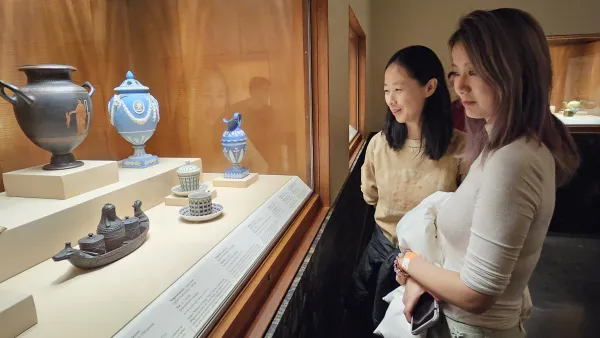Nathan Vedal joined WashU as assistant professor of Chinese literature in fall 2018. We sat down with him to learn more about him and his work.
What is your work about?
My research falls at the juncture of literary studies and intellectual and cultural history. I focus primarily on the early modern period, so roughly between the 16th and 18th centuries. In particular I look at how the Chinese language was studied in China during this period. The method of language study in this period differs so widely from what today we would consider to be the norms of linguistic study, and that's precisely what initially drew me to this topic—what it could tell me more broadly about the intellectual culture of this period. Especially when we speak of the 16th and 17th centuries, despite the fact that this is a flourishing period of literary production and philosophy, the contours of the broader intellectual culture are still not very well understood. One of the most exciting things about the study of language in this period is that scholars would connect language with all kinds of other fields that today we don't necessarily see as connected. They would make claims that for instance there is an inherent link between music and language, or cosmology and language, and argue that in order to fully understand the nature of language or to create a comprehensive system for describing language you needed to understand the underlying connections between all of these fields. You can almost think of it as the origin of interdisciplinary thinking.
You’re trained as a musician as well, right? How does your background in music come in contact with your academic work?
That's a good question. I think in a certain sense because I do look at musical texts from this period, my proficiency in musical terminology and ability to read music has helped to some degree. Now, on the other hand, the whole framework... music theory in China, it's a very different system from the Western classical music that I was trained in, so there was also a process of learning new things.
How did you become interested in studying Chinese literature and history to begin with?
Well this also ties back to language, actually, in that I began studying Chinese language in high school. I took it on a whim and almost immediately became entirely obsessed. I was fascinated with both the writing system, the characters, but also, and this may go back to music, I was captured by the tonal nature of Chinese, which is something that I think because of my musical background came to me relatively naturally. The language was so different from any of the languages I'd studied in the past, and that was something that I found particularly fascinating about Chinese. When I was in college and taking more advanced courses, I became compelled by a set of pressing questions, particularly related to the study of language in China. How did it begin? How was Chinese understood in relation to other languages in surrounding states? I had been at a music conservatory for college but then switched careers entirely, starting with graduate school and have continued in academia ever since.
If you were to recommend one text in your field what would it be?
I taught Pu Songling’s Strange Tales From a Chinese Studio last semester. I highly recommend it. It's a late 17th-century collection of tales of anomalies, miracles, strange happenings. It's probably the high point of Chinese fiction of the strange, and contains all kinds of fantastic stories that are written in ways that are both unsettling and creepy but also equal parts moving and charming. It's a remarkable work of literature. I've found that students here really responded well to this text, and it's one of the books that actually enticed me to pursue further research in Chinese studies.
So stepping outside of your field, then, what are you reading right now?
My primary non-musical or Chinese studies interest is entomology. I am very interested in insects, and I'm currently reading a book by Richard Conniff called Spineless Wonders. Each chapter highlights a different insect, with a focus on ones that don't necessarily get a good rap like mosquitoes or the house fly. He makes a case not necessarily for why you should like them, but for how they represent kind of a marvel of nature. Insects really do represent these incredible feats of engineering, and so it's something I love learning about. That is what’s currently on my nightstand.


